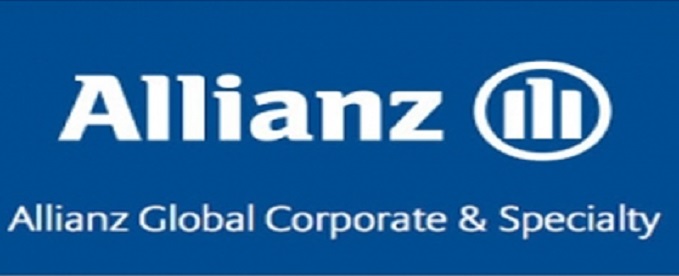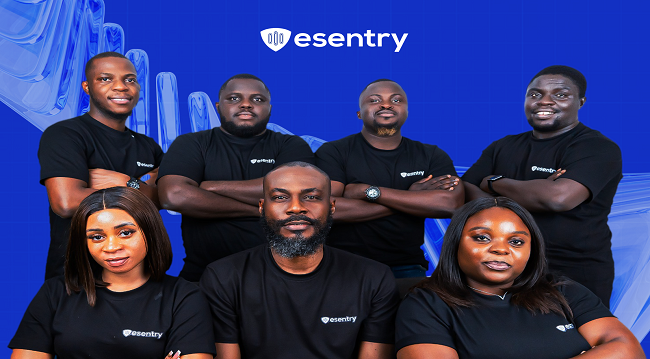E-Business
Allianz: Volatile Markets, US Lawsuits, ESG Issues and SPACs Create New Risks for Managers

Board members and company executives can be held liable for an increasing range of scenarios.

Today’s market volatility, with the increased threat of asset bubbles and inflation, the prospect of a growing number of insolvencies due to the pandemic environment, together with rising scrutiny around the environmental, social and governance (ESG) performance of companies and the urgency for robust cyber resilience are key risks for Directors and Officers (D&Os) to watch in 2022.
Risk managers and their D&O insurers should also closely monitor potential exposures to US derivative actions and other forms of litigation, while also not underestimating the challenges around increasingly popular SPACs (special purpose acquisition companies), according to the latest edition of Allianz Global Corporate & Specialty (AGCS)’ annual D&O report.
“The actions and culture of organizations and their directors and officers are coming under heightened scrutiny from a wide range of stakeholders, with litigation risk a primary concern,” said Shanil Williams, global head of Financial Lines at AGCS.
“This comes against the backdrop of a stabilizing D&O marketplace, although capacity is still tight in some segments and many companies would like to buy more limits than the industry can offer. The market remediation has advanced, including our own portfolio at AGCS, and this will gradually ease the pressure that some of our clients are facing. We are adopting a cautious and disciplined underwriting approach and need to remain wary about the current volatile business environment and closely monitor loss trend patterns. However, the D&O insurance space is slowly, but surely, offering opportunities for profitable growth again in selected pockets – and we are eager to pursue these.”
Uncertain insolvency issues continue to be key topic in the D&O space
The withdrawal of support measures for companies established during the pandemic sets the stage for a gradual normalization of business insolvencies in 2022.
The Euler Hermes Global Insolvency Index is likely to post a +15% y/y rebound in 2022, after two consecutive years of decline (-6% forecast in 2021 and -12% in 2020).
While the wave of insolvencies has so far been milder than anticipated, mixed trends are expected across the world.
In less developed markets, such as Africa or Latin America, the number of insolvencies is expected to increase faster compared to more developed economies, such as France, Germany and the US, where the impact of the governmental support is expected to last for longer.
Traditionally, insolvency is a major cause of D&O claims as insolvency practitioners look to recoup losses from directors.
There are many ways that stakeholders could go after directors following insolvency, such as alleging that boards failed to prepare adequately for a pandemic or for prolonged periods of reduced income.
Market volatility, climate change and digitalization key issues
The financial services industry, but also companies from other sectors, continues to face multiple risk management challenges in the current economic climate.
Markets are likely to become more volatile with the increased risk of asset bubbles and inflation rising in different parts of the world.
At the same time, more banks and insurers are expected to assign individual responsibility for overseeing financial risks arising from climate change, while investors are paying closer attention to the adequate and timely disclosure of the risk that it poses for the company or financial instrument they invest in.
The tightening regulatory environment, the prospect of climate change litigation or ‘greenwashing’ allegations could all potentially impact D&Os.
Meanwhile, digitalization has further accelerated following Covid-19, creating enhanced cyber and IT security exposures for companies.
This requires firms’ senior management to maintain an active role in steering the ICT (information and communication technologies) risk management framework.
“IT outages and service disruptions or cyber-attacks could bring significant business interruption costs and increased operating expenses from a variety of causes including customer redress, consultancy costs, loss of income and regulatory fines. Last, but not least, brand reputation can also suffer. All this can ultimately impact a company’s stock price with management being held responsible for the level of preparedness,” said Pauline Vacher, head of Financial Lines for South Africa and France.
Heightened litigation risk in the US
Litigation risk continues to be a top D&O concern, in particular around shareholder derivative actions which are increasingly being brought on behalf of foreign companies in US courts.
“A number of new lawsuit filings, the recent openness of certain courts to extending long-arm jurisdiction, and a possibly record-breaking settlement announced in October 2021, point to heightened US litigation risk for directors and officers of non-US domiciled companies,” David Ackerman, Global Claims Key Case Management at AGCS emphasizes.
Since early 2020, a group of plaintiffs’ firms has brought more than 10 derivative lawsuits in New York state courts on behalf of shareholders of non-US companies seeking to hold directors and officers legally and financially accountable for various breaches of duty to their corporations.
The financial hurdles to bring suit in the US are significantly lower than in many other countries, while US courts and juries are considered more plaintiff-friendly than many others around the world.
The consequences to directors and officers forced to defend themselves in derivative litigation before US courts can be severe.
In what may turn out to be a record-setting settlement for a US derivative lawsuit, in October of this year defendants agreed to pay a minimum of US$300mn to settle litigation brought in a New York state court by shareholders of Renren, a social media corporation based in China, and incorporated in the Cayman Islands, after allegations of corporate misconduct.
Scrutiny over SPACs
Another emerging risk in the global D&O insurance space comes from the growth of so-called Special Purpose Acquisition Companies (SPACs), also known as ‘blank check companies’.
These represent a faster track to public markets. Advantages fueling the growth of SPACs over traditional Initial Public Offerings (IPOs) include smoother procedures, less regulatory and process burdens, easier capital sourcing and shorter timelines to complete a merger with target companies. During the first half of 2021, the number of SPAC mergers in the US, both announced and completed, more than doubled the full year total of 2020 with 359 SPAC filings, garnering a combined US$95bn raised.
The growth of SPACs in Europe may not match the scale of the US boom, but there is still a growing expectation that it will increase despite a less favorable company law environment compared to the US.
In Asia the market is slowly gaining momentum with a significant uptick in companies in China, Hong Kong and Singapore as a new route to accessing capital markets.
SPACs carry a set of specific ‘insurance-relevant’ risks, and losses are already reported to be flowing through to the D&O market as both the SPAC and the private target company typically obtain D&O coverage.
“Exposures could potentially stem from mismanagement, fraud or intentional and material misrepresentation, inaccurate or inadequate financial information or violations of rules or disclosure duties,” said David Van den Berghe, global head of Financial Institutions at AGCS.
In addition, a failure to finalize the transaction within the two-year period, insider trading during the time a SPAC goes public, a wrong selection of a target to acquire or the lack of adequate due diligence in the target company could also come into play. Post-merger the risk of the go-forward company to perform as expected or failure to comply with the new duties of being a publicly-listed company also needs to be considered.
E-Business
esentry 2025 Report Shows Healthcare, Financial Services and Telecoms as Staging Grounds for Increased Cyberattacks in Africa

Cyber adversaries targeting African organisations are increasingly shifting away from opportunistic attacks toward deliberate, sector-specific campaigns aimed at the continent’s most critical digital infrastructures, according to the esentry 2025 Annual Report released by esentry, Lagos-based Africa’s leading indigenous Managed Security Service Provider (MSSP).

The report identifies healthcare, financial services, and telecommunications as the primary staging grounds for high-velocity cyberattacks, reflecting a growing focus on sectors that underpin economic stability, public welfare, and digital connectivity across Africa.
The findings are drawn from one of the largest cybersecurity datasets analysed in the region. Over the course of 2025, esentry processed more than 31 billion security events, generating 3.5 million alerts and successfully blocking over 15,000 malicious attempts. This monitoring scale shows that, while traditional financial institutions remain a core target, the threat landscape has expanded to include digital lending platforms, healthcare systems that store sensitive personal data, and telecom operators responsible for national and regional connectivity.
Within the healthcare sector, the report highlights ransomware as the most acute risk, with attackers frequently exploiting exposed Remote Desktop Protocol (RDP) services to compromise patient data and disrupt essential medical operations. In financial services, organisations are facing a surge in credential abuse, insider-related threats, and info-stealer malware designed to enable fraud and unauthorised access. Telecommunications providers are increasingly targeted by highly tailored phishing campaigns and attacks on exposed web services, which aim to harvest credentials and compromise customer data.
Commenting on the findings, Gbolabo Awelewa, Chief Business Officer at esentry, said the nature of cyber threats across Africa has evolved significantly. “The threats we are seeing today are deliberate, informed, and carefully tailored to local enterprises. Attackers are exploiting trusted access and moving quietly within networks, which makes early detection critical. Our coordinated cybersecurity model, spanning Defence, Intelligence, Offence, and Security Engineering, allows us to combine scale, speed, and deep contextual insight to detect and neutralise threats before they escalate,” Awelewa said.
A defining trend identified in the report is the shift from overt system exploitation to the abuse of legitimate access. By leveraging compromised credentials and ‘living-off-the-land’ techniques, attackers can blend into routine enterprise operations and significantly delay detection. This approach has compressed the attack lifecycle, enabling adversaries to move from initial access to full operational impact in fewer than 15 days.
To counter this acceleration, the report emphasises the importance of early detection and automated response. esentry says it currently contains low-complexity incidents in under 90 seconds, using a combination of structured threat hunting and centralised telemetry to anticipate and absorb attacker pressure rather than reacting after damage has occurred.
As African organisations continue to digitise, the esentry 2025 Annual Report positions itself as a critical reference point for understanding the continent’s evolving cyber threat environment. The report concludes that protecting Africa’s digital trust will require a shift away from fragmented security tools toward disciplined, coordinated defence frameworks, what esentry describes as a unified Phalanx formation.
E-Business
AfDB, UNDP Launch $10Bn AI Initiative for Africa

The African Development Bank Group (AfDB) and the United Nations Development Programme (UNDP) have launched an ambitious $10 billion project to support the adoption of Artificial Intelligence (AI) across the continent.

The 10 Billion Initiative intends to accelerate ethical AI adoption and inclusive digital economic growth in Africa.
The initiative follows the Nairobi AI Forum, which took place earlier this month in Kenya and brought together governments, private sector leaders, development partners, and tech innovators to define pathways for impactful AI adoption.
According to the organisations, the strategy is a co-designed collaboration between the Bank Group, UNDP, and commercial partners that aims to raise up to $10 billion by 2035.
The resources will be used to create up to 40 million new jobs across the continent by 2035, through targeted investments that provide the groundwork for AI and accelerate widespread adoption in everything from entrepreneurship and regional data infrastructure to policy frameworks and skill development.
Nicholas Williams, AfDB Group ICT operations division manager, commented: “As a leading multilateral development institution, the bank is leveraging its comparative advantage to ensure Africa is not left behind in the AI era.
“The AI 10 Billion Initiative paves the way for expanded partnerships and sustained investments that will accelerate AI entrepreneurship, strengthen data and infrastructure ecosystems, and support inclusive growth across the continent.”
E-Business
Firm Identifies RenEngine Loader Distributed Through Pirated Games and Software

Kaspersky Threat Research has revealed its analysis of RenEngine, a malware loader that has recently gained public attention. Kaspersky identified RenEngine samples as early as March 2025, with its solutions already protecting users from the threat at that time.

Beyond the cracked games highlighted in recent reports, Kaspersky researchers discovered that attackers created dozens of websites distributing RenEngine through pirated software, including graphics editors like CorelDRAW. This expands the known attack surface beyond the gaming community to anyone seeking unlicensed software.
Kaspersky has recorded incidents in Russia, Brazil, Turkey, Spain and Germany, among other countries. The distribution pattern indicates opportunistic attacks rather than targeted operations.
When Kaspersky first identified RenEngine, the loader was delivering the Lumma stealer. Current attacks distribute ACR Stealer as the final payload, and Vidar stealer has also been observed in some infection chains.
The campaign exploits modified versions of games built on the Ren’Py visual novel engine. When users launch infected installers, a fake loading screen appears while malicious scripts execute in the background. The scripts include sandbox detection capabilities and decrypt a payload that initiates a multi-stage infection chain using HijackLoader, a modular malware delivery tool.
“This threat extends beyond pirated games — attackers are using the same technique to distribute malware through cracked productivity software, which broadens the potential victim pool significantly,” said Pavel Sinenko, lead malware analyst at Kaspersky Threat Research. “Game archive formats vary by engine and title. If an engine doesn’t check the integrity of its resources, attackers can embed malware that executes the moment you click play.”
Kaspersky solutions detect RenEngine as Trojan.Python.Agent.nb and HEUR:Trojan.Python.Agent.gen. HijackLoader is detected as Trojan.Win32.Penguish and Trojan.Win32.DllHijacker.

 E-Business2 days ago
E-Business2 days agoAfDB, UNDP Launch $10Bn AI Initiative for Africa

 News3 days ago
News3 days agoNITDA Urges Stronger State Partnerships as Key to Digital Economy Goals @ South-South Stakeholders Forum

 Telecom3 days ago
Telecom3 days agoGSMA Launches Innovation Fund to Accelerate Green Transition Through Mobile Technology

 Telecom2 days ago
Telecom2 days agoGrey Expands Cross-Border Banking with USD Accounts, USDC Support

 Telecom3 days ago
Telecom3 days agoProf. Adeyanju is Strengthening Nigeria’s Digital Backbone for a Connected Future in Two Years of Purposeful Leadership

 E-Business3 days ago
E-Business3 days agoFirm Identifies RenEngine Loader Distributed Through Pirated Games and Software

 E-Financial3 days ago
E-Financial3 days agoFidelity Bank Launches HerFidelity Apprenticeship Programme 2.0 to Boost Women Entrepreneurship

 E-Financial3 days ago
E-Financial3 days agoTAJBank Secures A1 Ratings from Agusto, Datapro

























